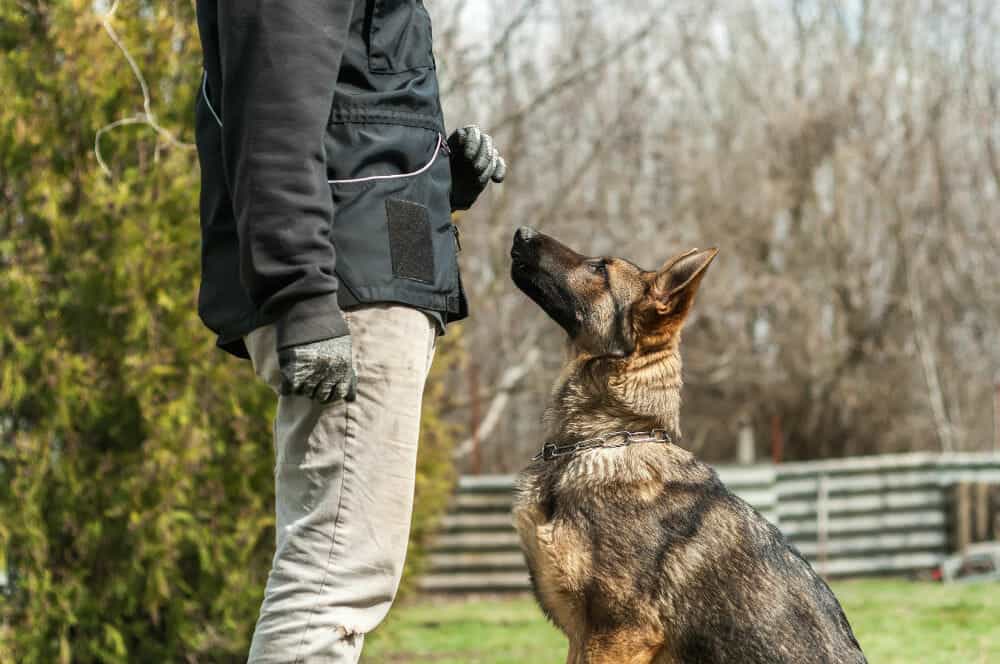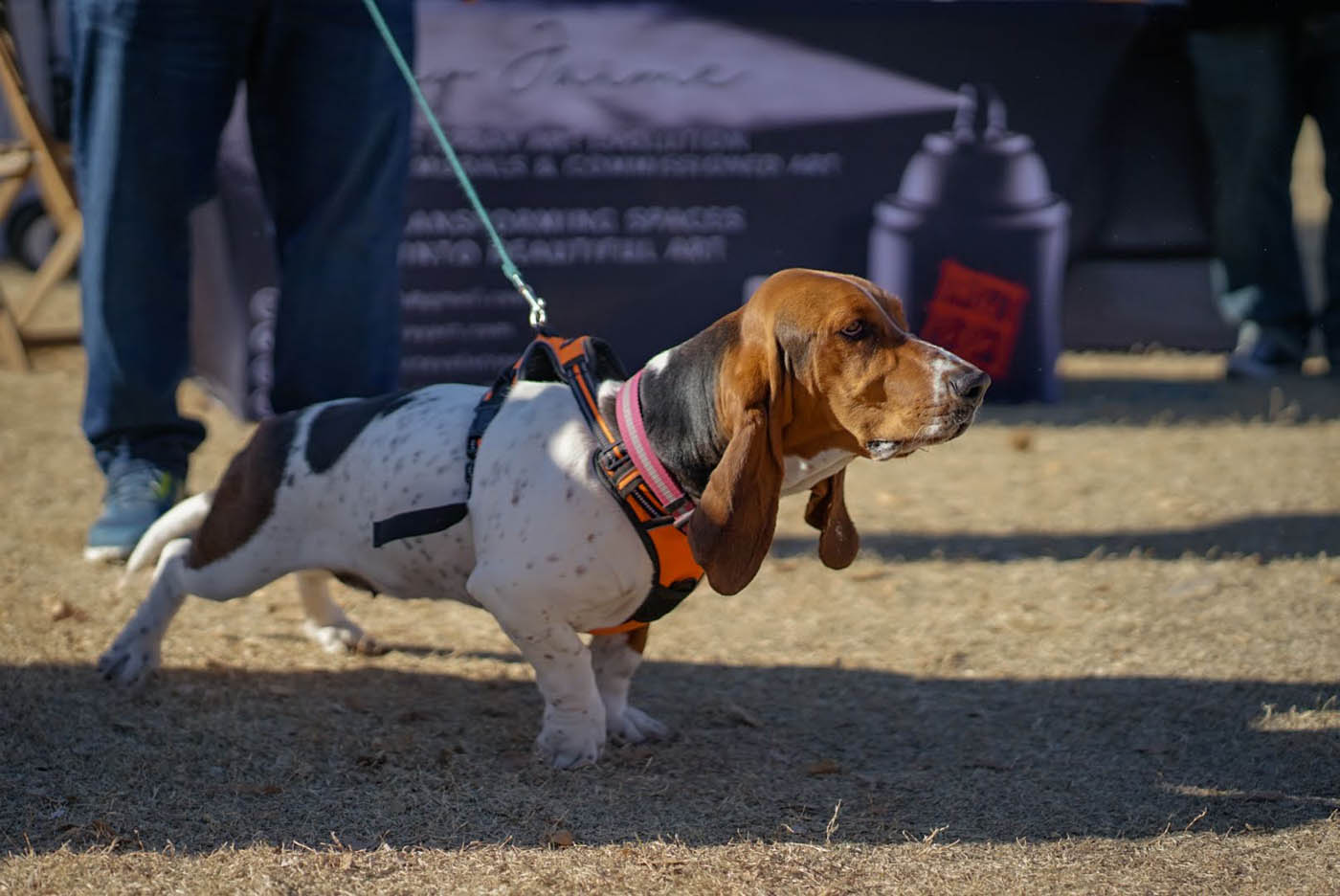Unleash Potential with Dog Training Near Me: Find Your Local Specialists
Unleash Potential with Dog Training Near Me: Find Your Local Specialists
Blog Article
Unlock Your Pet's Possible: Proven Dog Training Approaches for Success
Reliable canine training is a nuanced procedure that hinges on comprehending canine behavior and employing clinically backed strategies. By including favorable support, developing clear commands, and prioritizing socialization, pet proprietors can cultivate an effective partnership with their animals.
Recognizing Canine Habits
Understanding dog actions is crucial for effective training and cultivating a favorable partnership between pets and their owners. A thorough understanding of canine body language, vocalizations, and social interactions is crucial for recognizing their requirements and feelings. Canines communicate mainly with non-verbal cues; for instance, a wagging tail may show excitement, while pinned ears can indicate worry or entry.

Additionally, environmental variables play a substantial function fit a pet's behavior. Adjustments in routine, new surroundings, or the existence of strange individuals can lead to stress or anxiousness in dogs. Identifying these triggers allows owners to alleviate damaging responses and develop suitable training methods.
Ultimately, a deep understanding of dog habits lays the structure for effective training approaches, enhancing both behavior and the general bond between the canine and its owner. dog training near me. This expertise is vital for fostering a well-adjusted, happy canine buddy
Favorable Support Methods
Efficient training depends heavily on favorable reinforcement methods, which have actually been revealed to yield substantial cause forming desired actions in dogs. This method entails awarding a dog for showing specific actions, thus increasing the probability that these habits will certainly be repeated. Incentives can take different kinds, consisting of treats, praise, toys, or playtime, depending upon what encourages the specific pet.

It is necessary to gradually eliminate incentives as the canine finds out the behavior, transitioning to periodic support. This technique preserves the actions with time while avoiding dependence on constant benefits. By concentrating on positive reinforcement, instructors can cultivate a trusting connection with their pets, promoting a healthy and participating training atmosphere that enhances overall obedience and efficiency.
Developing Regular Commands
A fundamental aspect of successful pet dog training is the facility of regular commands. Consistency in commands is important for efficient interaction in between the trainer and the dog. When commands are consistent, pets find out to link specific words with desired behaviors, which accelerates the training process and improves understanding.
To establish constant commands, it is vital that all household participants utilize the exact same terminology and gestures. As an example, if a single person utilizes "sit" while one more says "take a seat," it can create confusion for the dog. Select clear, distinct words for commands and ensure everyone involved in the dog's training sticks to these selections.
Reinforce commands via regular practice, guaranteeing that the dog obtains sufficient opportunities to react correctly. When a dog effectively follows a command, prompt positive support ought to follow.
Finally, hold your horses. Developing consistent commands requires time and effort. With devotion and quality, you will aid your pet create a solid understanding of assumptions, ultimately causing a well-behaved friend.
Socialization and Direct Exposure
Interacting socially a pet is vital for cultivating a well-adjusted and positive companion. This process entails exposing your pet dog to a selection of environments, people, and other pets to create their social abilities and adaptability. Early socializing, preferably between the ages of three to fourteen weeks, is critical, as it prepares for a pet dog's future actions.
During socialization, goal to give positive experiences in different settings, such as parks, hectic roads, and homes with various other animals. Introduce your pet dog to numerous stimulations, including sounds, go to this web-site sights, and scents, ensuring that each encounter is satisfying. This direct exposure aids mitigate worry and anxiousness, leading the way for a more resilient dog.
Involving in regulated group play sessions with other dogs can additionally improve social skills, teaching your pet ideal communications and limits. Prioritizing socializing will substantially add to your pet's overall happiness and actions throughout their life.
Overcoming Common Educating Difficulties

Another regular problem is disturbance. Dogs may struggle to focus in hectic or unknown settings. Progressively desensitize your pet dog to disturbances by starting training in a quiet environment and slowly introducing more stimuli as they become competent (dog training charlotte nc). Positive reinforcement methods, such as treats and appreciation, can keep inspiration and emphasis.
In addition, behavioral issues like leaping or excessive barking can become frustrating. Address these by educating different actions, such as resting comfortably when greeting visitors. Uniformity and patience are essential; reinforce wanted habits constantly and prevent abuse, which can lead to complication.
Last but not least, identify that each dog is unique, and training timelines might vary. Dressmaker your technique to your canine's specific requirements, and seek specialist assistance if essential. With determination and the ideal strategies, getting over these difficulties can result in a use this link trained, satisfied canine companion.
Final Thought
Finally, opening a dog's possible necessitates a thorough approach that integrates an understanding of canine behavior, the application of favorable reinforcement methods, and the establishment of constant commands. Early socializing and exposure to diverse settings even more boost a pet's adaptability and confidence. By dealing with usual training challenges with customized techniques and patience, a unified and cooperative relationship in between pet dog and handler can be cultivated, ultimately leading to a mannerly friend efficient housebreaking a dog in flourishing in numerous scenarios.
Effective pet dog training is a nuanced procedure that pivots on comprehending canine actions and employing scientifically backed methods.Comprehending dog actions is vital for effective training and promoting a positive connection between pets and their owners.Reliable training relies heavily on positive reinforcement strategies, which have been revealed to produce significant results in forming wanted habits in canines. When commands are uniform, pets discover to link certain words with wanted behaviors, which increases the training procedure and enhances understanding.
In conclusion, unlocking a pet dog's potential requires a thorough strategy that includes an understanding of canine habits, the application of favorable reinforcement strategies, and the facility of consistent commands.
Report this page